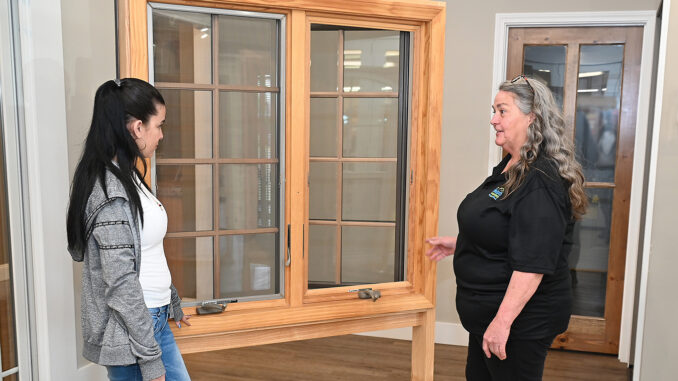
In today’s world, energy efficiency is more important than ever. One of the most effective ways to improve your home’s energy efficiency is by upgrading your windows and doors. These improvements not only enhance the aesthetic appeal of your home but also play a crucial role in reducing energy consumption and lowering utility bills. Here’s a comprehensive guide on how new windows and doors can save energy and why they are a worthwhile investment.
1. Improved Insulation
One of the primary ways new windows and doors save energy is through improved insulation. Older windows and doors often have gaps and cracks that allow air to escape, leading to drafts and increased energy usage. Modern windows and doors are designed with advanced materials and technologies that provide superior insulation. Features such as double or triple glazing, low-emissivity (Low-E) coatings, and insulated frames help to keep the indoor temperature stable, reducing the need for heating and cooling.
2. Reduced Air Leakage
Air leakage is a significant contributor to energy loss in homes. New windows and doors are engineered to minimize air leakage through tight seals and weatherstripping. These features prevent unwanted air exchange between the inside and outside of your home, ensuring that your heating and cooling systems work more efficiently. By reducing air leakage, you can maintain a comfortable indoor environment with less energy consumption.
3. Enhanced Solar Control
Modern windows come with advanced glazing options that offer enhanced solar control. Low-E coatings on windows reflect infrared light, keeping heat inside during the winter and outside during the summer. This helps to maintain a consistent indoor temperature, reducing the reliance on heating and cooling systems. Additionally, some windows are designed to block harmful UV rays, protecting your furniture and flooring from fading while also contributing to energy savings.
4. Energy-Efficient Materials
The materials used in new windows and doors are specifically chosen for their energy-efficient properties. For example, vinyl and fiberglass frames offer excellent thermal resistance compared to traditional wood or aluminum frames. These materials help to reduce heat transfer, keeping your home warmer in the winter and cooler in the summer. Additionally, energy-efficient windows often feature gas fills, such as argon or krypton, between the panes to further enhance insulation.
5. Improved Ventilation
New windows and doors can also improve ventilation, which is essential for maintaining indoor air quality and reducing the need for artificial cooling. Many modern windows are designed with features that allow for better airflow, such as tilt-and-turn mechanisms or adjustable vents. By promoting natural ventilation, you can reduce your reliance on air conditioning, leading to lower energy consumption and costs.
6. Smart Technology Integration
The integration of smart technology in new windows and doors is another way they contribute to energy savings. Smart windows can automatically adjust their tint based on the amount of sunlight, reducing the need for artificial lighting and cooling. Similarly, smart doors can be equipped with sensors that detect when they are open or closed, ensuring that your home remains energy-efficient. These technologies not only enhance convenience but also help to optimize energy usage.
7. Increased Home Value
Investing in new windows and doors can also increase the value of your home. Energy-efficient upgrades are highly attractive to potential buyers, as they promise lower utility bills and a more comfortable living environment. By improving your home’s energy efficiency, you can make it more appealing on the market and potentially command a higher selling price.
8. Environmental Benefits
Beyond the financial savings, upgrading to energy-efficient windows and doors has significant environmental benefits. Reduced energy consumption means lower greenhouse gas emissions, contributing to a smaller carbon footprint. By making your home more energy-efficient, you are playing a part in the global effort to combat climate change and promote sustainability.
Conclusion
In conclusion, new windows and doors are a smart investment for any homeowner looking to save energy and reduce utility bills. With improved insulation, reduced air leakage, enhanced solar control, energy-efficient materials, better ventilation, smart technology integration, increased home value, and environmental benefits, the advantages are clear. By upgrading your windows and doors, you can create a more comfortable, energy-efficient, and environmentally friendly home.
-submitted




